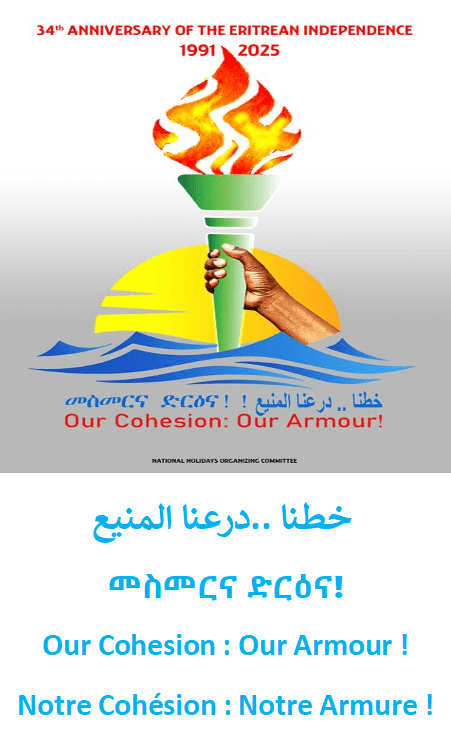May 22, 2011
President Isaias Afwerki on the Nile River region and Water Crisis
Eritrean Center for Strategic Studies: Your Excellency, between now and then the Nile Water Crisis come to the scene between the riverhead states, waterway states and river mouth states. What is the essence of this problem and what is the position of Eritrea towards it?
President Isaias Afwerki: There are ten countries in this valley and we chose to be a supervisor member for many considerations I do not want to discuss here. But the forum where this case is discussed became a politicized forum in order to create crises between these countries so as not to reach an agreement that secures the interests of all countries; and thus this case becomes as a cover for foreign agenda, blackmailing and an attempt to create crises. If we look at the Nile Water resources, we find that all peoples did not benefit form these resources, even Egypt and Sudan.
Here I talk from the mere technical view and not poetically. During the last 20 years, Egypt has not benefited even within the old agreement and the Sudan as well. As for Ethiopia, which alleges that 80% of the Nile Water comes from the Blue Bile, it did not benefit even from 2% or 3% of their water, weather in agriculture or electric power generation fields. All the other countries that provide only less than 20% of the Nile Water have other alternatives like rain water and other options. Did those countries benefit from their resources in order to change the way of life for their peoples? Did they establish the necessary infrastructures that allow for benefiting from the water for agricultural or power generation? The answer is that nothing took place. There are surprising figures which indicate that only 1%, 2% or 3% of water is utilized for the development of the economy or communities!!! So, are we in a status of conflicts and struggles for resources? Is there a rarity of the Nile Water resources? If there is rarity of water, then the riverhead or river mouth states can say that they did not get their share and consequently a conflict or dispute may arise, but in fact this issue is guaranteed and no argument in this case. I believe that it is an attempt to form clubs, as per the attempts by the regime in Ethiopia, to benefit of this title to blackmail other countries or to serve foreign agenda related to the Nile Water. The regime in Ethiopia tries to establish blocs. Are they justified? Do these blocs depend on common interests against the interests of the riverhead states? Is there an actual conflict, blocs and attractions between Egypt and Sudan on one hand and the other countries on the other?
These fabricated cases come in the framework of the agenda that try to create crisis in the region and then control it. In fact, there is no water problem and no conflict or dispute about the division of the Nile Water resources between the riverhead states & river mouth states, all these issues are fabricated. If there is a suitable climate, these states would have discussed and reasonably examined how to benefit from the Nile Water for developing their economy, agricultural resources and other water benefits. If this had taken place with Nile resources would have sufficed and exceeded the needs of the ten states, including Eritrea as a supervisor member in the Nile Valley Organization. We see that it is better for those states to find a solution to this crisis because there is no benefit for the riverhead to enter into conflict with Egypt & Sudan.
In the contrary, the Nile Water must be an opportunity for establishing economic relations and provision of material resources for benefiting from the Nile and export the surplus to the neighboring countries. The Middle East and other world countries shall invest in the Nile Water for the benefit of the next generations of those states. However, for the time being, matters deviated into vituperations & political complications, bearing in mind that the Nile Valley countries are in no need of such vituperations which are meaningless and do not serve the interest of the current and next generation in the region.
ECSSW: Your Excellency, in several interviews with Arab media you called for not politicizing the issue of the Nile Water. Is it really politicized now?
President Isaias: There must be a dialogue existing between all parties. It is useless to enter into vituperations, black mailing and politicization for the case. The concerned states would have behaved reasonably, calmly and objectively and discuss this issue for the interest of the next generation. However, without aware of the consequences, they deviated form the right track and the conversation began to take place thorough the media. But there are also negative aspects we warn against because sometimes the media, un-intentionally, involves you in vituperations through satellite channels and the result will be more problems and complications. Now, people became wiser and by the passing of time many states and governments began to be aware of this concealed inducement and committed errors. Therefore, all parties should be careful so as not to be involved and dragged to this ambush.
Read the full Interview here



